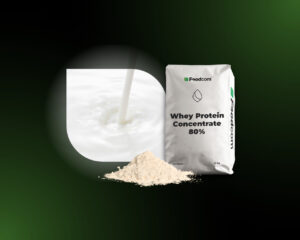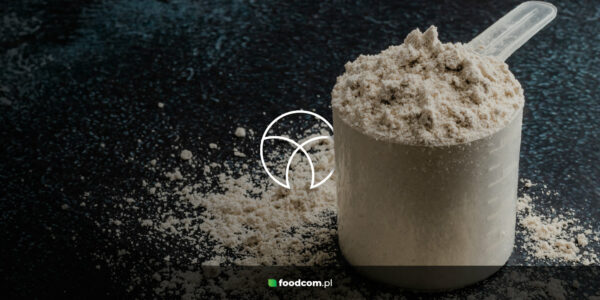- SMP prices remain stable, with the market for skimmed milk concentrate strengthening due to rising demand, leading to a slight increase in food-grade SMP prices.
- Prices are rising on the cheese and butter markets due to strong demand and tight supply, and further price increases are expected in the coming months.
- Sainsbury’s is using AI technology to improve animal welfare on dairy farms, while Riverview, LLP plans to build large dairy farms in North Dakota, which could boost the local economy.
Hello Partners!
Welcome back to our Newsletter!
Dive into the latest developments in the dairy industry, where market dynamics are changing rapidly. From rising prices for skimmed milk powder and cheese to groundbreaking AI-driven animal welfare technologies, the sector is evolving on many fronts. Find out how huge new dairy farms in North Dakota could reshape the local economy and why European cream prices are hitting record highs.
Let’s take a look at what else is happening in the dairy market!
Products of the Week
Skimmed Milk Powder
Prices for SMP intended for feed remain relatively stable, ranging around 2375-2400 EUR/MT for spot transactions. The market for skimmed milk concentrate is firming, with current offers around 2150-2250 EUR/MT FCA, indicating strong demand. Meanwhile, prices for food-grade SMP are slightly increasing, currently at 2350-2400 EUR/MT. Older lots of this product are becoming more difficult to find, suggesting tight supply conditions in the market.
Cheeses
The cheese market is currently experiencing stable conditions, but prices are on the rise. For Q4, prices for Gouda and Mozzarella are trending upwards, reaching and surpassing 4200-4300 EUR/MT. Similarly, Cheddar is trading between 4400-4600 EUR/MT. This increase in prices reflects robust demand for cheese, particularly in the upcoming quarter, with producers being cautious in their offers, indicating tight supply and potential further price increases.
Fats
Butter prices have seen a significant increase, currently trading at and above €7500/MT FCA, with Q4 transactions reaching around €7600/MT. In some regions we have seen prices as high as €7700/MT. The upward trend is due to strong market demand, coupled with higher cream prices, suggesting that butter should be priced at around EUR 7800/MT. The market outlook, supported by concerns about supply constraints, indicates the potential for further price increases in the near term.
Butteroil and AMF are also following butter’s upward trend, with their prices posting increases for another week in a row.
Liquids
The market for cream is particularly strong and prices continue to rise. They are currently between 9100-9300 EUR/MT FCA and mark the highest prices ever achieved on the European market. This reflects the robust demand from both the food processing sector and the direct consumer market. The steady upward trend in cream prices underlines the crucial role of cream in the dairy market, especially in light of rising input costs.
Similarly, the market for skimmed milk concentrate is firming, with prices now around 2200-2300 EUR/MT FCA. This indicates a strong market for liquid milk derivatives, driven by steady demand from dairy processors looking to maintain production levels despite rising costs.
Milk production is at a low level in some countries, and the overall trend indicates that the decline in production is likely to continue. As a result, raw milk prices have reached record highs.
Whey powders
The sweet whey powder market remains steady, with prices for whey powder intended for feed unchanged at around 660-680 EUR/MT for spot transactions. However, there is an expectation of upward pressure on prices in Q4 and Q1 of the next year due to anticipated demand increases. Recent firming in the European market for food-grade SWP suggests that demand, particularly from Asia, is starting to push prices upwards.
Prices for WPC80 in Europe have surged to 10300 EUR/MT, reflecting a turn in market sentiment as buyers actively return, seeking to secure volumes. The market is expecting a tight Q4, stimulated by strong consumer demand. Manufacturers are currently facing no pressure to sell, allowing them to observe the market dynamics as inquiries gradually increase.
WPI remains at a premium with the European market price holding steady at 16500-17000 EUR/MT, a reflection of its scarcity on the spot market where it has been sold out for months. Despite the high demand and limited availability, the outlook for WPI suggests that prices are expected to climb further, although the risk of market collapse is deemed lower compared to WPC80, owing to the intense ongoing shortage.
What else?
Foodcom S.A. strengthens its presence – new office in Rzeszow
We are expanding our operations by opening a new office in Rzeszow, a city known for its innovation and strategic location at the crossroads of major trade routes. This move underscores our commitment to strengthening our presence in both domestic and international markets. The new office in Rzeszow will not only increase our access to Eastern and Western European markets, but also allow us to establish strong local partnerships, contributing to mutual growth and regional economic development. We plan to hire 50 employees, and our goal is to attract both experienced professionals and young talent looking to grow in an international environment.
Oceania
Rising energy costs pose a serious threat to New Zealand’s dairy industry. Open Country Dairy (OCD) CEO Mark de Lautour warns that the industry faces soaring energy prices once current contracts expire. The switch from coal to electricity and gas has increased demand without sufficient availability of alternative energy sources. OCD has invested in new electric boilers but is keeping coal boilers as a back-up. High energy costs are expected to put pressure on milk powder prices this season. Fonterra has also expressed concern about a lack of energy resilience affecting the competitiveness of New Zealand exports. The industry is calling for a long-term energy strategy to secure its future.
North America
Riverview, LLP plans to build two massive dairy farms in eastern North Dakota that would quadruple the state’s current dairy cow population, according to North Dakota Agriculture Commissioner Doug Goehring. The proposed 12,500 and 25,000 cows face challenges in labor, processing capacity and biosecurity. The state’s dairy industry is struggling, with only 24 dairy farms remaining and processing plants forced to close due to insufficient milk supplies. Farmers in the region welcome the projects as they provide stable markets for grain and manure management. Riverview’s operation could have a significant impact on the local economy by creating jobs and supporting community development.

![Dairy product prices soar: essential updates on Butter, Cheese, and more! [232nd Edition of Foodcom DAIRY Newsletter] Dairy product prices soar: essential updates on Butter, Cheese, and more! [232nd Edition of Foodcom DAIRY Newsletter]](https://foodcom.pl/wp-content/uploads/2024/06/Foodcom_SA_Dairy_Newsletter_4-1520x760.jpg)


![Cheese market review 2026 [Global Report] Cheese market review 2026 [Global Report]](https://foodcom.pl/wp-content/uploads/2024/07/Global-Report-Przeglad-rynku-sera-2024-600x338.jpg)



